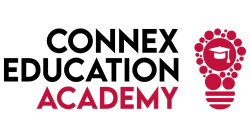Continuing Professional Development (CPD) is essential for teachers, ensuring they stay up-to-date with the latest teaching methods, enhance their skills, and continue to inspire their students. With the ever-evolving landscape of education, CPD offers teachers the tools and knowledge to adapt, grow, and excel in their roles.
Whether you’re a seasoned educator or just starting out, professional development is key to not only improving classroom practice but also boosting job satisfaction and student outcomes. In this blog, we’ll explore why CPD is so important and how it can benefit both teachers and students alike. Keep reading to discover how investing in your growth as an educator can make a lasting impact.
What is continuous professional development?
Continuous professional development, (CPD) is essential for educators, enhancing skills, job satisfaction, and student outcomes.
With online courses, CPD is now more accessible than ever.
Teaching constantly evolves, and ongoing professional development ensures educators stay current with new pedagogies, technologies, and best practices.
While initial training provides the foundation, ongoing learning refines and expands your expertise.

CPD takes many forms—training sessions, online courses, conferences, and mentorships—all aimed at improving teaching effectiveness. Many accreditations also require it to maintain credentials.
Ultimately, CPD reflects a commitment to lifelong learning, benefiting both educators and students. Invest in yourself—your students will thank you!
The Importance of CPD for Teachers
Teacher professional development is crucial for teachers, especially in schools without structured training. It enhances subject knowledge, teaching methods, and strategies for supporting diverse learners.
With education constantly evolving, CPD keeps teachers updated on new techniques and research. Regular learning fosters growth, motivation, and confidence, ensuring they deliver the best lessons and inspire students. Teachers professional development programs should be evidence-based, involve ongoing feedback and support, and be tailored to individual teachers’ needs to ensure long-term improvements in educational practices.
CPD for Early Career Teachers
Early Career Teachers (ECTs) need targeted support to build teaching skills and confidence. Individual teachers’ development journeys are crucial, especially within the context of recent reforms in professional development. CPD for ECTs should focus on practical skills like classroom management, lesson planning, and assessment techniques, essential for creating an engaging learning environment.
Research shows that coaching, mentoring, and feedback from experienced teachers help ECTs refine their practices. Schools can further support ECTs with peer observation, collaborative planning, and joint teaching to foster continuous learning.
The Early Career Framework (ECF) provides a structured CPD approach, ensuring ECTs receive the support and resources needed for success. Investing in ECT development enhances teacher growth and student outcomes.
What are the features of effective CPD for Teachers?
An effective CPD programme is measured by its impact on teachers’ classroom practices and student outcomes, not just the trainer’s expertise. Reflecting on and evaluating teaching approaches should be a priority for teachers, school leaders, and CPD providers.
CPD success thrives when teachers feel ownership of their learning, contribute to the culture, and experience trust. The DfE recommends CPD programmes spanning two terms with ongoing support, as one-off sessions aren’t sufficient. Effective CPD is backed by evidence of lasting impact in the classroom.
The quality and variability of teacher development opportunities affect teachers’ growth, with many finding training insufficient, especially post-pandemic. Tailored, context-specific content is key, and high-quality CPD providers can make a big difference.
Effective professional learning promotes collaboration, peer exchanges, and discussions on practice. Teachers learn not only from experts but also from one another, shaping their professional journeys in real classroom settings.

How can CPD contribute to better student learning outcomes?
Quality professional development empowers teachers to unlock their students’ full potential. By continuously enhancing their subject knowledge and skills, educators can deliver lessons tailored to diverse learning styles, staying up-to-date with the latest strategies.
Meaningful CPD boosts teachers’ confidence and reignites their passion. By integrating CPD into daily teaching practice, teachers refine their practice, experiment with new approaches, and document the impact on student outcomes. Enthusiastic, skilled teachers inspire students, fostering deeper learning and better achievement. Investing in teachers’ growth helps students thrive.
Find new teaching methods and teaching strategies
Keeping lessons fresh is essential for inspiring students, whether you’re new to teaching or experienced. Teachers should actively seek new strategies through quality professional development, like workshops, collaboration, and research, to reignite passion and refresh lessons. Taking charge of their own professional development allows teachers to identify and manage opportunities that best suit their needs.
Training and development are vital for teacher growth, especially for early career teachers (ECTs). Mentors and school leaders play a key role in helping ECTs adapt their skills to the classroom.
CPD also helps teachers build on existing knowledge. By reflecting on their practices and learning new techniques, educators can refine skills, master new tools, and better understand student needs. A commitment to lifelong learning keeps teachers growing and aligned with evolving best practices.
Benefits of Professional Development
Professional development is essential for teachers to improve their knowledge, skills, and teaching practices. The benefits of professional development are numerous and can have a significant impact on pupil outcomes. Here are some key benefits:
Improved Teaching Practices:
Engaging in professional development helps teachers stay updated with the latest educational research and best practices. This continuous learning enables them to refine their teaching techniques, adopt innovative strategies, and create more effective lesson plans, ultimately leading to better pupil outcomes.
Increased Confidence:
Professional development can significantly boost teachers’ confidence in their abilities. By acquiring new skills and knowledge, teachers feel more competent and prepared to handle classroom challenges. This increased confidence translates into improved job satisfaction and reduced stress.
Enhanced Career Prospects:
Participating in professional development activities can open up new career opportunities for teachers. Whether it’s taking on leadership roles, specializing in a particular subject, or pursuing advanced certifications, professional development can pave the way for career advancement and increased earning potential.
Better Pupil Outcomes:
When teachers improve their teaching practices through professional development, students benefit directly. Effective teaching strategies and a deeper understanding of subject matter can lead to higher academic achievement and better overall pupil outcomes.
Increased Job Satisfaction:
Professional development fosters a sense of engagement and motivation among teachers. By continuously learning and growing in their profession, teachers feel more fulfilled and satisfied with their work, which can lead to reduced turnover and a more stable teaching environment.
Investing in professional development is a win-win for both teachers and students. It not only enhances teaching practices but also contributes to a more positive and effective learning environment.
Overcoming Barriers to CPD
Despite the benefits of CPD, teachers face barriers like limited time, resources, and support, with those in rural or disadvantaged areas often having less access to quality opportunities.
To overcome these challenges, schools should prioritise CPD by allocating time and resources, fostering a culture of ongoing learning, and providing clear guidance. School leaders play a vital role in promoting CPD and valuing continuous improvement.
Technology offers a solution by providing flexible online courses, webinars, and virtual coaching, making CPD more accessible. By using digital tools, schools can enhance teacher development, improve student outcomes, and elevate education quality.
The Role of Technology in CPD
Technology has transformed CPD for teachers, offering flexible options like online courses, webinars, and virtual coaching. This is especially helpful for busy educators who struggle to attend in-person sessions.
Digital platforms enable collaboration, peer feedback, and the sharing of best practices, enhancing CPD through diverse perspectives. Technology also personalises learning with tailored pathways, real-time feedback, and data insights, helping teachers focus on key areas for improvement. By embracing these tools, schools can support teacher development, improve pupil outcomes, and foster continuous learning.
School Leaders this is for you!
School leaders play a crucial role in fostering a culture of continuous professional development. By prioritising CPD, leaders ensure that teachers have the support and resources to continually improve their practice, ultimately leading to better pupil outcomes and enhanced school performance.
Effective leaders recognise the importance of CPD in boosting teacher quality and student achievement. They allocate dedicated time and resources, provide clear guidance, and encourage ongoing learning. By valuing continuous improvement, leaders create a positive and supportive learning environment.

Leaders can also help teachers overcome CPD barriers by promoting collaboration, peer feedback, and the sharing of best practices. A collaborative culture allows teachers to learn from each other and develop new strategies for success. Prioritising CPD benefits individual teachers and strengthens the entire school community.
How to create a professional development plan for teachers?
1. Set SMART, professional goals:
Goal-setting is key to successful professional development. Teachers should set SMART goals—Specific, Measurable, Achievable, Relevant, and Time-bound—to focus on targeted skills or knowledge areas. Whether it’s mastering differentiated instruction or deepening subject expertise, SMART goals provide motivation, direction, and a way to track progress over time.
2. How to engage teachers in professional development:
Keeping teachers engaged in professional development can be challenging, but making learning relevant, practical, and classroom-focused helps. Involve teachers in planning and allow them to shape sessions around their needs. Offer choices, like different workshops or opportunities to lead training. Foster a collaborative culture where teachers learn from each other and apply new skills right away. With opportunities for reflection and immediate use, professional development becomes an empowering experience, not just a task.
3. How to make continuous professional development programmes effective for teachers?
Impactful CPD should be an ongoing, sustainable process, grounded in the latest research and evidence-based practices. Preparing curriculum intent statements is a crucial part of this process. Engage teachers by involving them in shaping the content and format to meet their development needs.
Bite-sized sessions with active learning, collaboration, and immediate classroom application help embed new skills. Effective CPD also includes follow-up support like coaching, peer observations, and feedback loops to refine practice over time. Fostering a culture that values risk-taking and continuous growth ensures CPD becomes a cycle of learning and improvement, empowering teachers to evolve as skilled practitioners.
Professional development is key for teachers, with all research showing it positively impacts pupil outcomes and teaching quality.
Don’t forget to check out our ‘After The Bell’ podcast, which you can listen to on a weekly basis on Spotify or Apple Podcasts.
If you would like any more information, please do not hesitate to contact us by email at info@connex-academy.com or call 01253 543 660.

